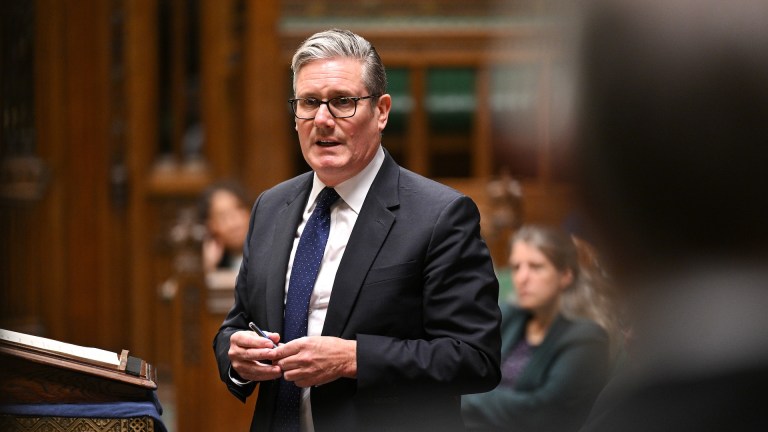In his book, published in 2013, Rayner warned that: “We are so dependent on imports, and our own supply chain is so fragile, that if there is some kind of international disruption we are in serious trouble.”
So he saw all this coming. “What I did not predict,” Rayner says now, “is that it would be self-inflicted. We don’t have weeks and weeks of food in this country. When it comes to fresh food, the ‘just-in-time’ culture means there is very little at hand. Are we going to starve? No. But are we at risk of seeing empty shelves for things that we take for granted? Absolutely.”
In the 1990s, Britain produced more than 70 per cent of the food needed to feed the nation. Today, that figure has fallen to 49 per cent. Thirty per cent of food is imported directly from the EU, the equivalent of 10,000 shipping containers per day. Another 11 per cent of food arrives via EU deals with non-EU countries. So at the very least, in a No Deal scenario, 41 per cent of the food we eat will not get into the country until some sort of deal is done. And we all know how good our negotiators are at dealing with deals.
While researching food security, Rayner talked to Lord Cameron of Dillington, a farmer and the first chief of the Countryside Agency, who said Britain was just “nine meals from anarchy”.
That rattling prediction has become more realistic than Rayner could have imagined.
“How long does it take for shelves to go empty of the food you need before people start reaching for drastic options?” Rayner asks. “Food is an imperative. The point he was making was three days of empty shelves would be enough to lead to civil disorder. I mean, it’s an extraordinary conversation to have in the UK. It’s the sort of conversation you have in war zones.”
Advertising helps fund Big Issue’s mission to end poverty
But does Brexit provide the ideal opportunity to take a fresh look at domestic food production and for our farmers to take advantage?
“Well, that would be brilliant were it not for the fact that retailers seem unwilling to play their part,” Rayner says, citing reports from last week revealing that Lidl’s contracts with suppliers ensure they, rather than the supermarket, will have to bear the brunt of additional tariffs.
“It also takes an awful lot of money to invest in the rural economy,” Rayner continues. “You can’t just say, ‘Oh, go from running a 500-head pig farm to a 2,000-head pig farm’. That’s an enormous amount of investment and if supermarkets are not willing to pay a reasonable price then no, it’s not going to help. There is no way that farming can suddenly boom without there being investment to go into it. Sorry to be so bleak.”
Rayner has a love (or at least respect)/hate relationship with supermarkets. On one hand, they have forced such hard deals on farmers in the UK that many have gone out of business. At the same time, since the government only specialises in shambles, when it comes to something crucial like food supply, a ‘leave it to Tesco’ plan is perhaps our best hope. Supermarkets, at the end of the day, want to sell us stuff and keep their automated checkouts bleeping.
“The sophistication and the heft of these massive companies is helpful because they do have logistical tools and will do everything they possibly can, but there are limits to what they can do,” Rayner explains. “But they cannot just magic food through the ports if it’s being held up. The strength and complexity of the supermarket and the commercial imperative is a marvellous thing. But throw any grit into the wheels and it’s going to cause major problems.”
Advertising helps fund Big Issue’s mission to end poverty
For their part, the food industry is demonstrating co-operation that should make politicians hang their heads. They have asked for aspects of competition law to be suspended so they can coordinate food supply. Tim Rycroft, the Food and Drink Federation’s chief operating officer, has said that “selective shortages” of food could last for “weeks and months” and
so wants to be able to plug gaps where needed without being fined for anti-competitive behaviour.
However, when industry insiders report back to Rayner on their reception from government agencies, they say that their concerns are repeatedly met with a shrug.
And another example of the government’s disconnection from the realities of food supply came last week when Home Secretary Priti Patel announced she wanted freedom of movement to end on October 31. Around 30,000 seasonal workers are required to harvest fruit crops alone in the UK; the government has mooted making 2,500 visas available. So even if we grow more of our own, it might increasingly go unpicked.
Of course, the Yellowhammer leak represented the “absolute worst case,” according to Michael Gove. And, he added, it was out of date anyway.
“I went in and I talked to [Gove] at one point,” Rayner reveals. “He’s fluent in sounding like he’s on top of it, but he can’t be. He was implicated in the lies of Leave.EU and now he’s bollocking on about securing the food supply.
“One of the things that really struck me – he said this was an old worst-case scenario. Well, show us the current one then.”
Advertising helps fund Big Issue’s mission to end poverty
The government has yet to do so.
Jay Rayner’s new book My Last Supper: One Meal, a Lifetime in the Making (Faber & Faber, £16.99) is out on September 5. He tours the UK from September 9.










